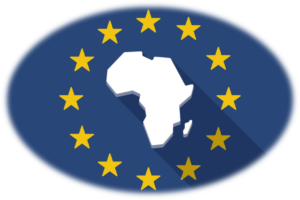Trading with the EU: The three most important things that African businesses should know
- 17
- Jun

Trade between Europe and Africa
Trade between Africa and Europe started decades ago when they traded in items such as cloth, metalware, spices, and raw materials. According to Eurostat, the EU imported 61% of goods from Africa mostly primary goods(drinks, energy, and raw material). In turn, the EU exported 7o% of goods to Africa compared to China with 8% in 2018. This makes the EU, Africa’s largest trading partner. The importance of trade between countries and continents cannot be overemphasised. Trade is crucial for any developing economy and is more so the case for African trade with Europe. For Africa in general and Sub-Saharan Africa (SSA) in particular, trading with Europe can in the following ways:
- Help create visibility for Africa’s products worldwide,
- Increase exports to other countries outside Europe like China, Brazil, and India, thereby increasing its competitiveness and expansion.
- Further, trade between Africa and Europe can bring about business growth and investment.
- Trading creates additional income and jobs especially in the agricultural sector – a promising sector on which Africa heavily depends.
- Finally, trading can contribute to poverty alleviation.
That said, there are three important things African businesses or newcomers should know about emerging markets in Europe especially in the agricultural sector. This is important since it can help for inclusive trade and empower women, taking into consideration the fact that most businesses in Africa are women-owned. The three things to note are:
- Have the proper Certification and documentation for the product
To be able to trade in the EU, it is very important to have the proper documentation and certifications as required for products (especially for organic products) in the EU. If a product is organic for example, Fair Trade documentation may be required. Some products however are certified by the home government of the exporting country like Ghanaian shea butter. Organic products across international markets fetch premium prices, unlike conventional products. Whatever the case this should be a share agreement between the seller and the buyer. Africa is a haven for organic products as well as natural resources. The sourcing of sustainable products is the new trade focus in Europe, and as such, businesses want to be associated with green products and processes, especially in the food industry. Green branding means sustainability is taken into consideration when producing and processing which is a unique selling point that helps to differentiate a product from its competitors.
2. Find out whether what a business can offer is needed in European markets
It is important to find out whether what the business is offering is a buyer/offer taker for it in Europe. With regards to agricultural products, one of the main export products to Europe is oil. Other export products include spices, fruit and vegetables, cocoa beans, and plant-based protein crops like soya. Also, products that are unique and grow only in African soil provide a unique selling point when entering the EU market. Nilotica shea butter for example is grown only in East Africa and is a core ingredient in luxurious creams and lotions in cosmetic industries worldwide. Avocados are yet another example of agricultural produce that is in high demand in Europe. Doing research and finding out what is needed can avoid lost time and money advertising products that are more suited to regional markets instead of the EU. Also knowing what is needed in Europe will help to narrow down the country of export and the market know-how conditions between the trading countries.
3. Africa is considered the next business destination for Europe compared to others like China and India.
In as much as Africa wants to do business with Europe, Europe also wants to do business with Africa. Consider technology exchange and transfers in the agricultural sector, apps for training, track and trace of a product, service provider electronic equipment, automotive, and pharmaceuticals businesses.
As the vision for the EU Tech Chamber states, Technology obliges – meaning that companies in the above-mentioned areas will want to do business with Africa. COVID-19 has limited travel for many, and yet business goes on. Cosmetic companies for instance want to get the finest from Africa to help enrich their end product. Africa is a haven for the best that mother nature has to offer like quality organic products, natural resources, and a skilled workforce. Going digital can create visibility and help businesses reach all corners of the world with a few clicks.
Our recommendations
Trading in Europe is not an easy task for some entrepreneurs, especially when it comes to cultural barriers and laws. However, it is very possible because trade has been going on between Europe and Africa for centuries.
It is important to know that food safety is the number one top priority in the EU. As such, a business should make sure that quality control of their product is a top priority.
Establishing trust between buyers and sellers is one of the issues that come up for both producers and consumers. Thus, working with a trusted partner that understands and can represent both parties is paramount. Further, strategies such as coming together as a group of farmers can help to obtain organic certification at a cheaper rate for organic products in the EU.
Finally, make sure to look for an organisation/ partner organisation that can represent a business in Europe or Africa should challenges arise.
Our role at EuroAfri Link
EuroAfri Link is out to bridge the market gap between African farmers and European consumers by creating a trade channel that will ensure transparency and trust about the origin of the product.
